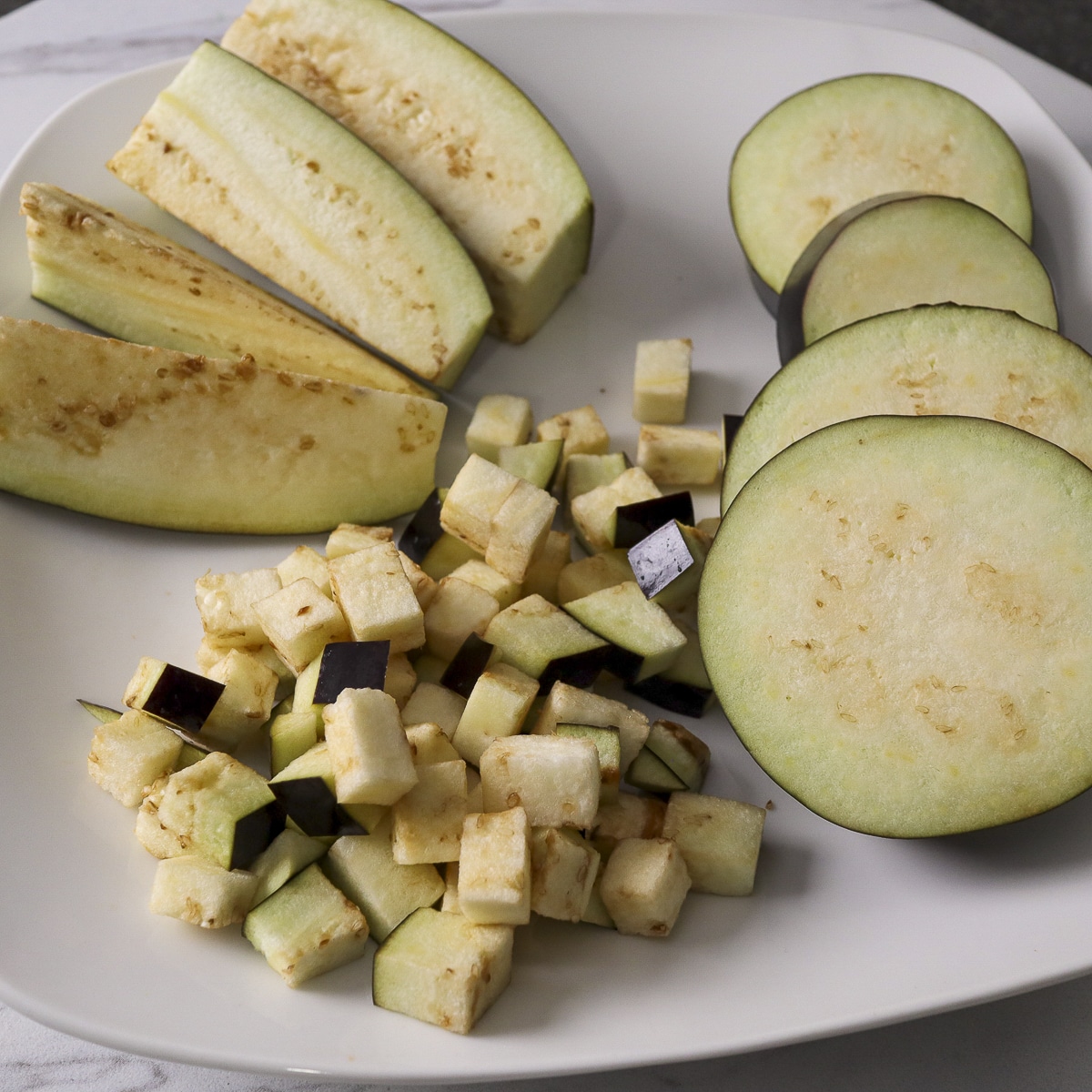How to Store Eggplant
You might think that you have been storing eggplant correctly all of this time by keeping it in the fridge like almost all other vegetables. Well, I am here to tell you that is actually not the recommended way to store an eggplant.
Eggplant is pretty particular about what temperature it likes. The ideal temperature for eggplant is between 50 and 55 degrees Fahrenheit.
Unfortunately, eggplant doesn’t last more than a few days after you buy them. The most important thing when storing eggplant is keeping it in a cool, dark, and dry place.
How to store eggplant properly

Turns out the refrigerator is not the right place to store eggplant. Who would have known?
When you are buying eggplant you want to look for a nice plump one with smooth, sleek-looking, firm skin. Go ahead and pick them up and feel them. The denser the better.
Some of these steps will also apply after you cut eggplant.
1. Temperature
So like I said, these finicky vegetables like their temperature just right when being stored. You want to keep them around 50-55 degrees Fahrenheit.
They don’t do well in extreme temperatures in either direction. It will affect the flavor and the texture of the eggplant when you cook it.
When you store eggplant in the refrigerator, the cold temps will cause the eggplant to perish prematurely.
2. Environment
Eggplant should be kept somewhere that is dry. Moisture and eggplant don’t mesh well. If it’s hot and humid in your kitchen, I would recommend putting them in your pantry or in a cupboard.
3. Keep away from ethylene producers
Ethylene-producing fruits like bananas, tomatoes, or melons give off a gas that speeds up the ripening process. This can be very helpful if you are trying to ripen your avocados but not eggplant.
Eggplant already spoils faster than a lot of other vegetables. You want to store them away from these so that you can ensure that they stay fresh as long as possible.
4. Refrigerator
OK, so if you are adamant about storing eggplant in the fridge you want to at least loosely wrap them in a paper towel. This will help keep moisture away from it.
You will want to make sure to use it as soon as possible though as this will speed up the ripening process and cause it to get mushy quickly.
Use as soon as possible I mean within 1-2 days.
How to store cut eggplant
If you have already cut your eggplant and you need to store it in the fridge then the best way is an air-tight container.
You really want to use it asap. Eggplant does not do really well just sitting around after it has been cut. Some wouldn’t think that you can freeze eggplant but actually, it freezes really well. Learn how to freeze eggplant with these simple step-by-step instructions
How to store cooked eggplant
When you have cooked your eggplant if it’s fried or grilled or even roasted.
It’s a good idea to eat it instead of storing it but if you have leftovers then I would store it in an airtight container in the refrigerator.
Check out my post on how to tell if eggplant is bad.

Online Cooking for Beginners Course